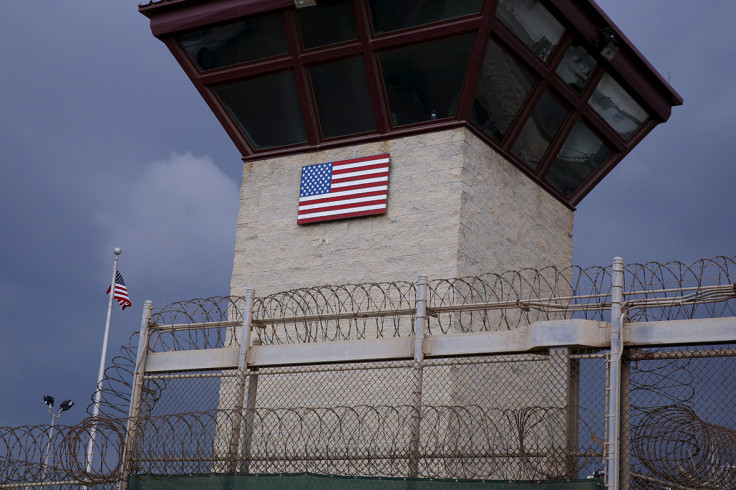Barack Obama is the most powerful man in the world – so why is Guantanamo Bay still open?
Those who argue that Obama does not have the power to close the prison are simply wrong.
Late Monday evening, 15 Guantanamo detainees arrived in the UAE. Among them was one of my own clients, Mohsen Aboassy, a Yemeni man, 23 when he was sold to the US for a bounty in Afghanistan, who is now 37 years old.
As I write this, I am in Qatar, only 100 miles away. The UAE is not a perfect solution. It is hardly a paradigm of democracy, and has thus far not worked with us at Reprieve to help erstwhile prisoners back onto their feet. But various factors weigh heavily in its favour as a destination for a detainee from a Cuban prison cell: first, it is not Guantanamo Bay; second, it is not Guantanamo Bay; and so on. Indeed, as one of my clients said, most detainees would rather be sent to the North Pole than remain where they are.
Mohsen Aboassy is rather typical of those who have been released to date. The US paid good money for him – some $5,000 – the going price for any Arab with a beard found in Afghanistan or Pakistan. Translated to a British income, this would be some $250,000. Many would sell their own grandmother for that price.
It is therefore no great surprise that US intelligence turned out to be utterly addled. Along with the 718 who have been released to date, another 20 remain in Guantanamo who have long since been cleared – thus, 738 of 779 (or 94.7%) of the detainees have been found to be no threat to the United States or its allies.
Contrast this to the Big Lie told by former Secretary of Defense Donald Rumsfeld: that we should dispense with the fripperies of a fair trial for these men – rights that have evolved since the Magna Carta in 1215 – because they were the "worst of the worst" terrorists in the world.

When Mohsen became a Reprieve client, we naturally investigated him. The strongest evidence we could find that he was committed to physical violence was his choice for favourite film: Kung Fu Panda. The "evidence" against Mohsen stemmed primarily from a notorious informant who swapped storied against his fellow detainees for visits to the Love Shack, an equally notorious benefit for tattletales that involved watching pornographic movies.
Some say that Obama does not have the power to close the prison. They are simply wrong.
Mohsen was cleared by the US in 2009. While he should never have been detained, this still means that he spent seven years in detention after even the US military agreed he was nobody. Quite how this can be squared with due process, it is difficult to imagine. Only recently has President Barack Obama felt a sense of urgency to release detainees in an effort to fulfil the promise made in January 2009 – the first commitment of his presidency – to close the prison. Quite why he waited so long, only he can say.
There are many reasons why the prison should be closed. It is a blot on America, just as it is a monstrous waste of US tax dollars. As of today, it is costing us more than £3m dollars per year, per detainee. That would be the cost of a new primary school for each of the 61 remaining men held there. When the other 20 cleared prisoners are gone, the price tag will rise to almost five million.
READ MORE: After 14 years of torture and illegal detention 'freed' Guantanamo prisoners are left destitute.
Some say that Obama does not have the power to close the prison. They are simply wrong. He is, after all, the most powerful man in the world. It does not matter that the Republican Congress has enacted a prohibition against transferring the detainees to the US mainland. Obama's predecessor, Republican President George W. Bush, insisted repeatedly that the president has the power to ignore such legislation.
Obama is the commander-in-chief, and he has many options. Perhaps the most sensible would be to wait until the interregnum between the election on Tuesday, November 8<sup>th, 2016, and his departure from office on Inauguration Day, Friday, January 20<sup>th, 2017. He will then have 73 days, including slow media days on Thanksgiving, Christmas and New Year's Day, to simply move the remaining handful of prisoners to a US military base, where they can be kept in total security.
For example, Fort Bragg has a military population of 238,646, roughly the entire population of Blackpool (albeit, you must imagine each Blackpudlian carrying an M-16 rifle): the detainees would be outnumbered 5,682-to-one, without paying for a single extra guard. The base is spread over an area of 163,000 acres, which is about seven million times the size of the average English garden: surely sufficient space to hold 42 people.
If this makes sense to you, I should issue a warning to any credulous reader: over the years, I have offered plenty of unsolicited advice to the government on logical ways in which to rid ourselves of the black hole that is Guantanamo. Almost invariably, the government has done something exceptionally foolish instead. We will simply have to wait to see what they do this time.
Clive Stafford Smith is the founder and director of Reprieve.
© Copyright IBTimes 2025. All rights reserved.






















